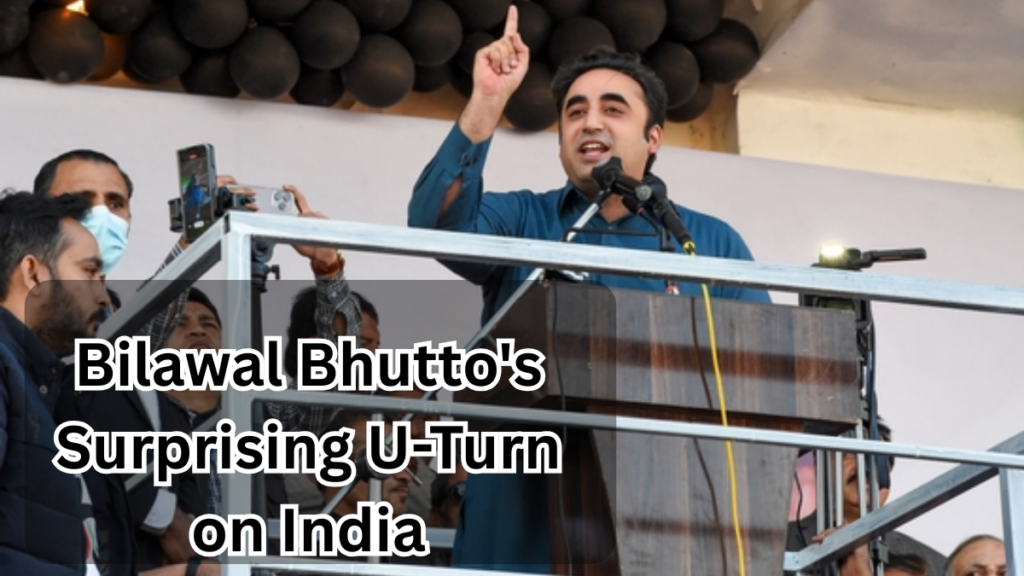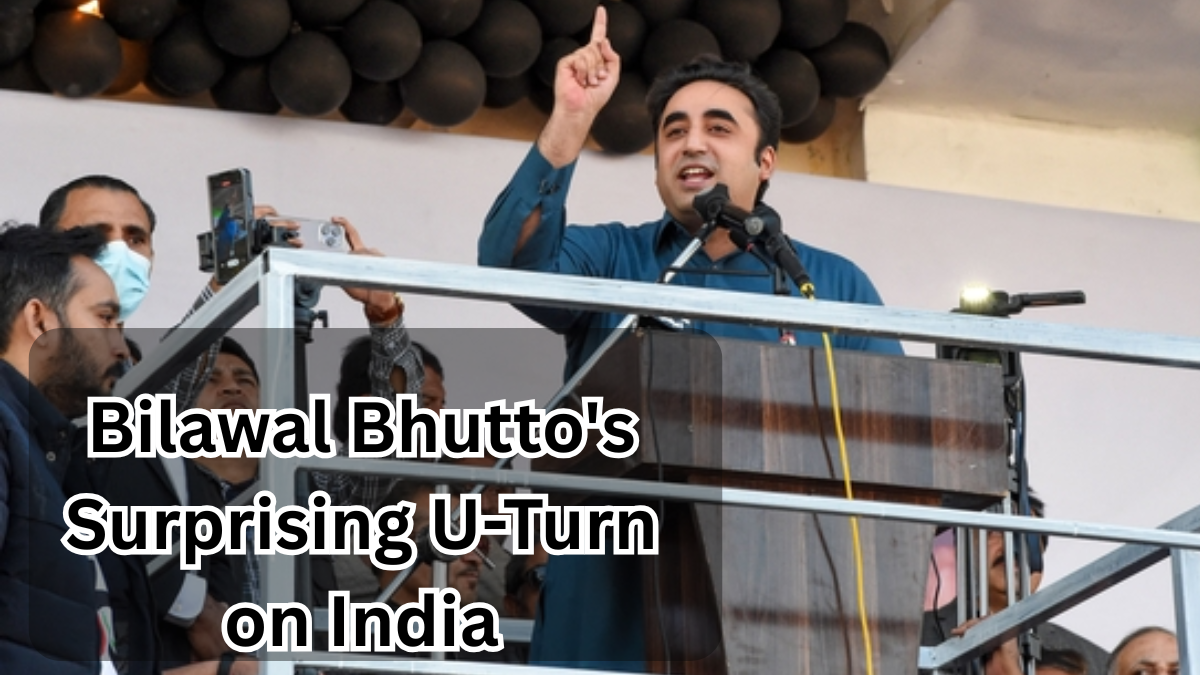In a dramatic shift that has caught many political observers by surprise, Pakistan’s former Foreign Minister Bilawal Bhutto Zardari, once known for his aggressive rhetoric against India, is now calling for peace between the two South Asian neighbors. This transformation—from warning of “blood in the rivers” to advocating for dialogue—marks a significant change in tone and intent.

The Man Behind the Statement: Who Is Bilawal Bhutto?
Bilawal Bhutto Zardari is no stranger to political legacy and public scrutiny. As the son of former Prime Minister Benazir Bhutto and former President Asif Ali Zardari, he carries a political legacy steeped in both ambition and controversy.
Quick Snapshot of Bilawal Bhutto Zardari:
| Detail | Information |
|---|---|
| Full Name | Bilawal Bhutto Zardari |
| Political Party | Pakistan People’s Party (PPP) |
| Position (Former) | Foreign Minister of Pakistan |
| Known For | Fiery speeches, strong anti-India stance |
| Family Legacy | Grandson of Zulfikar Ali Bhutto |
The Controversial Remark: “Blood Will Flow in Rivers”
In 2022, during heightened tensions over Jammu & Kashmir, Bhutto made international headlines with a chilling warning:
“There will be blood in the rivers if India continues its oppression.”
This statement sparked outrage in India and was widely criticized as inflammatory and counterproductive to diplomacy. At the time, Bhutto was seen as an emerging political figure trying to assert his stance in a hyper-nationalist climate.
A Softer Tone Emerges: Bhutto’s Call for Peace
Now, in 2025, Bilawal Bhutto is singing a very different tune. Speaking at a recent political gathering, he expressed a desire for “peaceful co-existence and mutual respect” between India and Pakistan.
His Updated Message Includes:
-
Acknowledging the importance of bilateral dialogue
-
Calling for economic cooperation in South Asia
-
Expressing regret over past hostilities
-
Promoting regional stability through diplomacy
“We must look forward, not backward. The people of both countries deserve a future free of fear, war, and hatred,” he said.
What’s Driving This Change?
Many believe Bhutto’s new message is part of a broader political strategy aimed at reshaping his image ahead of future elections. Pakistan is grappling with economic challenges, internal unrest, and diplomatic isolation. A message of peace could help shift public attention and appeal to moderate voters.
Factors Behind Bhutto’s Shift:
| Factor | Description |
|---|---|
| Electoral Strategy | Rebranding as a peace-seeking leader |
| Economic Crisis | Seeking regional partnerships to stabilize Pakistan’s economy |
| International Pressure | Push from global powers to ease regional tensions |
| Youth Mobilization | Appealing to a younger, peace-aspiring population |
India’s Response: Cautious but Watchful
So far, New Delhi has not issued an official statement responding to Bhutto’s changed stance. However, analysts believe India will likely take a wait-and-watch approach, given the history of unkept promises and shifting political winds in Pakistan.
The Bigger Picture: Can Words Lead to Real Peace?
While Bhutto’s softened rhetoric is a welcome sign, real progress between India and Pakistan will depend on:
-
Ceasefire compliance at the Line of Control (LoC)
-
Counter-terrorism cooperation
-
Resumption of people-to-people contacts
-
Constructive diplomatic dialogue
FAQs
1. What did Bilawal Bhutto mean by “blood in the rivers”?
That remark, made in 2022, was a strong metaphor for his warning against India’s actions in Kashmir. It symbolized intense hostility and was widely criticized as promoting violence.
2. Why has Bilawal Bhutto changed his tone now?
The shift likely stems from internal political strategy, international diplomatic pressure, and Pakistan’s economic challenges.
3. Has India responded to Bhutto’s new peace proposal?
As of now, there has been no formal response from India. The Indian government is expected to assess the sincerity of the gesture before reacting.
4. Is this the first time a Pakistani leader has called for peace with India?
No. Over the years, various Pakistani leaders—including Nawaz Sharif and Pervez Musharraf—have made overtures for peace, though results have often been short-lived.
Click here to learn more
Pari is a passionate writer known for captivating stories that blend imagination and reality. Inspired by travel, history, and everyday moments, Pari crafts narratives that resonate deeply with readers.




